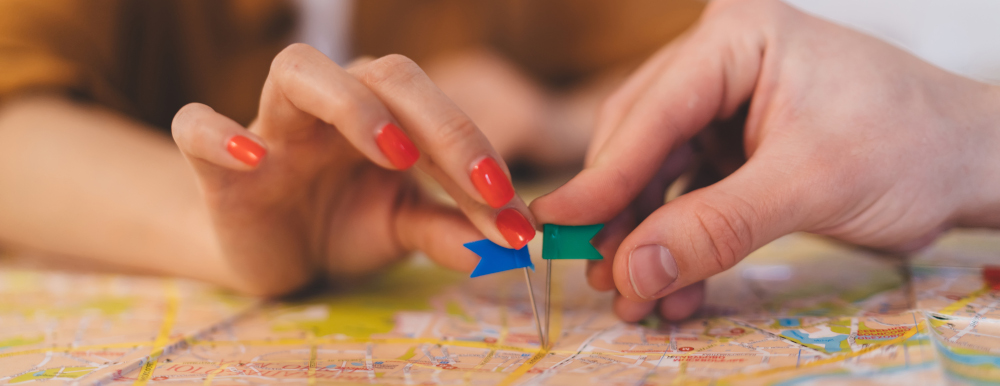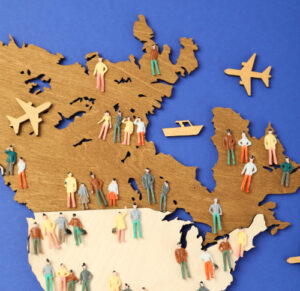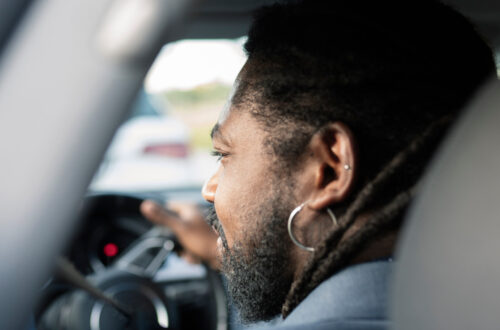
Google Maps and the Roads We Refuse to Forget
There’s a strange intimacy to the “Saved” section on Google Maps. It’s where you’ll find the quiet footprints of lives half-lived, childhood homes you haven’t visited in decades, restaurants that no longer exist, petrol stations in small towns that meant everything once. Most South Africans don’t talk about it, but we’re building personal cartographies of memory every time we drop a pin.
These aren’t travel plans. They’re reminders. Reminders of the places we were whole, the streets where something broke, or the one-bedroom flat where the most chaotic chapter of our lives unfolded. Everyone has them. A marked location named “Don’t go here again.” A pin labeled “2007,” dropped next to an industrial lot that’s now a warehouse. In South Africa, where the land remembers more than most people dare speak, Google Maps has quietly become a grief diary.
The technology wasn’t designed for this. It was meant for restaurant reviews and route planning. But over time, it’s evolved into a silent confidant. South Africans are archiving their own histories with satellite precision. It’s especially prevalent among people who’ve migrated, Joburgers living in the Cape, Capetonians now in Canada. The map becomes a bridge back to an old self. You can’t walk those streets anymore, but you can still see the layout, still trace the journey from the high school gate to your friend’s mom’s car waiting in the lot.
And then there are the cemeteries. Not the famous ones. Not Westpark or Maitland. The small ones, tucked between houses, or the informal ones out in Limpopo or the Eastern Cape, where the gravestones lean and the names are carved by hand. Pins marked simply “Dad” or “Kganya.” You won’t find these places in travel guides. But if you looked through enough phones, you’d find them scattered across the country. Tiny markers of where the tears hit the soil.
There’s something deeply South African about this unspoken ritual. We’re a country layered in movement and memory. People leave towns, but never quite escape them. We relocate to find work, escape old pain, or chase something lighter. But through our saved maps, we still drive those old routes, alone, silent, and pixelated.
It’s not all heavy. Some pins are romantic. “Our spot,” saved on the side of the N2 near a petrol station where nothing actually happened, except one unforgettable conversation. Or the place where two people, drunk on gold tequila and bad decisions, once kissed for the first time next to a dodgy parking garage. That pin’s still there, years later. The person might be gone. The moment isn’t.
 There are also more practical memories. The shebeen that used to have the best shisanyama before the owner disappeared. The old NetFlorist warehouse job in Midrand, where you first learned to hate Mondays. The one-room flat in Sunnyside you rented as a student, now labelled “Survived here.” No photos. Just a pin, as if to prove to yourself that you made it through.
There are also more practical memories. The shebeen that used to have the best shisanyama before the owner disappeared. The old NetFlorist warehouse job in Midrand, where you first learned to hate Mondays. The one-room flat in Sunnyside you rented as a student, now labelled “Survived here.” No photos. Just a pin, as if to prove to yourself that you made it through.
We never talk about how digital maps now serve emotional functions. But when people grieve in silence, when families fall out, when someone leaves in a rush and says, “I’m never going back,” Google Maps listens. It keeps the coordinates. It doesn’t forget the way.
And yet, this quiet archive says something bigger about how we process change. In a country where so much of our identity is bound up in place, where you’re from, where you made it out of, where your surname is known, we rely on these pins to stitch our past into the present. They’re like emotional bread crumbs. Not for going back. Just to know it was real.
For South Africans in the diaspora, the pins hit even harder. The “Home” location stays on, even if it hasn’t been home for ten years. The school your niece now attends. The Shell garage where you used to top up before long drives into Mpumalanga. You might be waking up in a London flat, but at 2, 13 a.m., your fingers still drift back to that map. Still opening the app. Still zooming in.
There’s something sacred about that digital gaze. The technology gives you space to grieve, remember, and honour, without speaking. Without explaining. It’s a way of saying, “This mattered. This happened.” Even if you don’t want to talk about it.
In a world obsessed with moving forward, with deleting the past and upgrading to newer versions of ourselves, maybe it’s okay to keep a few ghosts on the map. Maybe it’s necessary. Because sometimes the distance between who we were and who we are now is only a few centimetres wide, on a screen. And when you’re not ready to go back, but not ready to let go either, Google Maps becomes the middle ground.
A pixelated, silent kind of mourning. Or remembering. Or just not forgetting.




